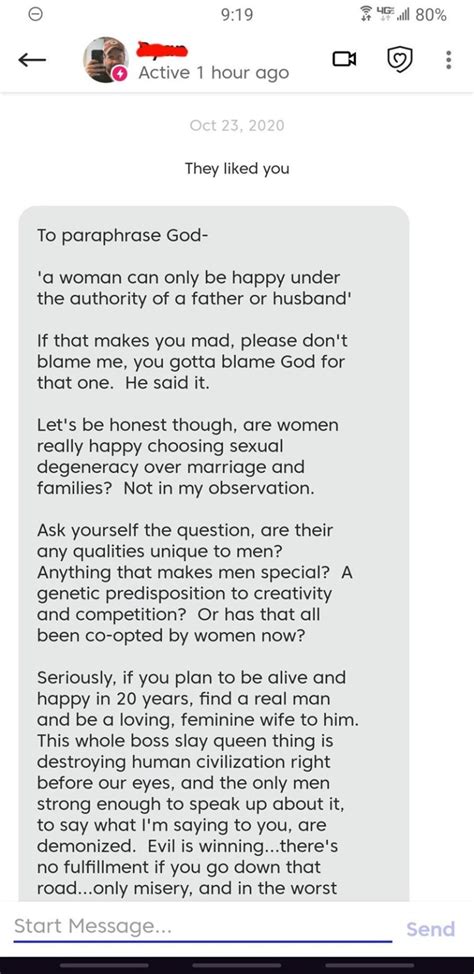
Entitlement and manipulative behavior disguised as kindness are under scrutiny as women share experiences with self-proclaimed “nice guys” who revealed toxic attitudes, showcasing a darker side of male entitlement and the challenges women face in navigating such interactions.
The online discourse surrounding the “nice guy” trope has reignited, with numerous women recounting instances where men, initially presenting themselves as kind and considerate, later exhibited entitled and manipulative behaviors. These personal stories, shared across social media platforms, highlight a disturbing pattern of expectations, resentment, and sometimes even aggression when their advances or perceived kindness were not reciprocated. The experiences expose the chasm between the “nice guy” facade and the reality of toxic entitlement lurking beneath the surface.
The term “nice guy” has become synonymous with men who believe their perceived kindness entitles them to romantic or sexual attention from women. These individuals often express frustration and resentment when their gestures are not met with the desired response, revealing a sense of entitlement and a lack of genuine empathy or respect for women’s autonomy. According to the women sharing their experiences, the initial charm and attentiveness are often a calculated strategy to manipulate and control, rather than genuine expressions of care.
One recurring theme in these narratives is the expectation of reciprocity. Many “nice guys” reportedly keep a mental tally of their “good deeds,” expecting women to reciprocate with affection or sexual favors. When these expectations are not met, they often resort to passive-aggressive comments, guilt-tripping, or outright anger. “They act like kindness is currency, and they’re owed something in return,” one woman shared. This transactional approach to relationships undermines genuine connection and reduces interactions to a power dynamic based on obligation.
The shared stories also reveal how these men often portray themselves as victims, lamenting their perceived mistreatment by women who “only go for the bad boys.” This narrative allows them to deflect responsibility for their own behavior and perpetuate the idea that women are inherently irrational or incapable of appreciating “true” kindness. By positioning themselves as perpetually wronged, they garner sympathy from others and reinforce their belief that they are entitled to romantic success.
Many of the women recount instances where the “nice guy” persona quickly dissolved when confronted with rejection or disagreement. The mask of politeness would slip, revealing anger, resentment, and even verbal abuse. This abrupt shift in behavior underscores the performative nature of their kindness and exposes the underlying entitlement driving their actions. “It’s like they’re just waiting for an excuse to show their true colors,” one woman explained.
The accounts also highlight the challenges women face in navigating these situations. Many feel pressured to reciprocate unwanted attention out of fear of being labeled as rude or ungrateful. They worry about provoking a negative reaction from the “nice guy” and often find themselves walking on eggshells to avoid conflict. This fear can be particularly acute in situations where the man holds a position of power or authority.
The prevalence of these experiences underscores the need for a broader societal conversation about masculinity, entitlement, and healthy relationships. Experts suggest that these behaviors stem from a combination of factors, including societal expectations about gender roles, media portrayals of romance, and a lack of emotional intelligence. Men are often taught to suppress their emotions and view women as objects to be won, rather than as individuals with their own agency and desires.
Challenging these ingrained beliefs requires a multi-faceted approach. Education is crucial in promoting healthy relationship dynamics and teaching individuals how to communicate their needs and boundaries effectively. Encouraging empathy and respect for others, regardless of gender, is also essential. Additionally, media literacy can help individuals critically analyze the harmful stereotypes perpetuated in popular culture.
The shared stories serve as a reminder that genuine kindness is not transactional or conditional. It stems from a place of empathy, respect, and a genuine desire to connect with others. True kindness does not demand reciprocity or expect anything in return. It is freely given and offered without strings attached. As the women who shared their experiences demonstrate, recognizing and challenging toxic entitlement is crucial for fostering healthier and more equitable relationships.
Furthermore, many of these “nice guys” exhibit a lack of respect for boundaries, often pushing for more than what is offered or comfortable. The initial friendliness is used as a tool to wear down resistance, making it difficult for women to assert their limits without appearing unreasonable or unkind. This persistent pressure can be exhausting and emotionally draining, forcing women to constantly defend their personal space and autonomy.
The pervasive nature of this behavior suggests a broader cultural issue regarding how men are socialized to interact with women. The emphasis on romantic pursuit as a conquest, combined with the expectation of female gratitude for male attention, creates a breeding ground for entitlement and resentment. This outdated model fails to recognize women as equal partners with their own desires and agency.
The impact of these interactions can be significant, ranging from emotional distress to feelings of anxiety and distrust. Women who have experienced this type of behavior may become wary of men who display excessive flattery or eagerness, fearing that it is a prelude to manipulation. This can hinder their ability to form genuine connections and create a sense of isolation.
The online sharing of these stories provides a platform for women to connect with others who have had similar experiences, creating a sense of validation and support. It also serves as a form of collective resistance, challenging the normalization of toxic behavior and empowering women to speak out against it. By sharing their stories, they are contributing to a broader cultural shift towards greater accountability and respect in relationships.
The “nice guy” phenomenon is not just about individual interactions; it reflects deeper societal issues related to gender roles, power dynamics, and the objectification of women. Addressing these issues requires a fundamental shift in how we educate young men about relationships and consent. We need to promote empathy, respect, and the understanding that women are not objects to be won, but individuals with their own thoughts, feelings, and desires.
The stories shared underscore the importance of self-awareness and emotional intelligence in building healthy relationships. Men need to examine their own motivations and expectations, and recognize that kindness should not be used as a tool for manipulation. They need to learn to respect boundaries, listen to women’s needs, and engage in relationships based on mutual respect and equality.
In conclusion, the experiences shared by these women serve as a cautionary tale about the dangers of toxic entitlement disguised as kindness. By shedding light on this pervasive issue, they are empowering others to recognize and challenge these behaviors, ultimately contributing to a more equitable and respectful society. The ongoing conversation is essential for fostering healthier relationships and dismantling the harmful stereotypes that perpetuate the “nice guy” myth. The key takeaway is that genuine kindness is freely given without expectations, and respect for boundaries is paramount in any healthy interaction.
Many accounts also mention the use of negging—subtle insults disguised as compliments—as a tactic employed by these “nice guys.” This manipulative technique is designed to undermine a woman’s confidence and make her seek validation from the perpetrator. The subtle jabs erode self-esteem and create a sense of dependence, making it easier for the “nice guy” to exert control. This insidious form of emotional abuse often goes unnoticed by outsiders, as the insults are carefully veiled as playful banter.
Furthermore, these men often exhibit a strong aversion to female friends, viewing them as obstacles to romantic success. They may attempt to isolate the woman from her support network by subtly criticizing her friends or creating conflicts. This isolation tactic makes it more difficult for the woman to recognize the manipulative behavior and seek help. The “nice guy” wants to be the sole source of validation and support, ensuring that the woman remains dependent on him.
The experiences highlight the importance of trusting one’s instincts. Many women reported feeling uneasy or uncomfortable around these men, even before the toxic behavior became apparent. Learning to recognize and trust these gut feelings is crucial for protecting oneself from potential harm. Ignoring these red flags can lead to emotional distress and even dangerous situations.
The online discourse surrounding the “nice guy” trope has also sparked a broader discussion about the importance of consent and respect in all interactions. Consent is not merely the absence of a “no”; it is an enthusiastic and freely given “yes.” It is essential to respect a woman’s boundaries, even if they are not explicitly stated. Pressuring someone to do something they are not comfortable with is a form of coercion and violates their autonomy.
The stories shared also underscore the need for bystander intervention. If you witness a man behaving in a way that seems manipulative or disrespectful towards a woman, it is important to speak up and offer support. Even a simple act of intervention, such as changing the subject or checking in with the woman, can make a difference. Bystander intervention can disrupt the dynamic of power and provide the woman with a sense of safety and solidarity.
The “nice guy” phenomenon is a symptom of a larger societal problem: the unequal distribution of power between men and women. Addressing this issue requires dismantling the patriarchal structures that perpetuate these inequalities. This includes challenging harmful stereotypes about gender roles, promoting women’s empowerment, and ensuring that women have equal access to opportunities and resources.
The shared experiences also emphasize the importance of self-care and seeking support. Women who have experienced this type of behavior may benefit from therapy or counseling to process their emotions and develop healthy coping mechanisms. Connecting with supportive friends and family can also provide a sense of validation and community. It is important to remember that you are not alone and that there are resources available to help you heal.
The stories serve as a powerful reminder that kindness is not a right, but a gift. It should be offered freely and without expectation of reward. True kindness stems from a place of empathy, compassion, and a genuine desire to connect with others. It is not a transactional exchange designed to manipulate or control.
The ongoing conversation about the “nice guy” trope is essential for creating a more equitable and respectful society. By shedding light on this pervasive issue, we can empower individuals to recognize and challenge toxic behaviors, ultimately fostering healthier relationships and dismantling the harmful stereotypes that perpetuate the myth of the entitled “nice guy.” The key is to promote genuine kindness, respect boundaries, and recognize that women are not objects to be won, but individuals with their own agency and desires. The change starts with awareness and continues with action.
The prevalence of online dating has further complicated the “nice guy” dynamic. The anonymity of the internet can embolden individuals to engage in behaviors they might not otherwise exhibit in person. The pressure to stand out from the crowd can also lead to exaggerated displays of “niceness,” which can be difficult to distinguish from genuine kindness. This creates a fertile ground for manipulation and deception.
Many women have reported encountering “nice guys” on dating apps who bombard them with compliments and attention, only to become aggressive or resentful when their advances are not reciprocated. The online environment can also facilitate stalking and harassment, as individuals can easily track a woman’s online activity and send unwanted messages. This can create a sense of fear and vulnerability.
The stories also highlight the importance of setting boundaries early and consistently. Clearly communicating your expectations and limits can help to deter unwanted attention and prevent the “nice guy” from overstepping. It is important to be assertive and not to feel pressured to explain or apologize for your boundaries. Your personal space and autonomy are paramount.
The shared experiences also underscore the need for greater accountability for harmful behaviors. Online platforms should implement stricter policies to address harassment and abuse, and individuals who engage in toxic behavior should be held responsible for their actions. This can help to create a safer and more respectful online environment.
The ongoing dialogue about the “nice guy” trope is not about demonizing all men. It is about challenging harmful behaviors and promoting healthier relationships. It is about recognizing that kindness is not a weapon to be used for manipulation, but a genuine expression of empathy and respect. It is about empowering individuals to assert their boundaries and demand to be treated with dignity.
In conclusion, the shared experiences of these women serve as a powerful reminder of the pervasive nature of toxic entitlement and the importance of challenging harmful stereotypes about masculinity. By shedding light on the “nice guy” phenomenon, we can create a more equitable and respectful society where genuine kindness prevails. The conversation must continue, and the changes must be implemented to ensure a better future for all.
Frequently Asked Questions (FAQ)
-
What is the “nice guy” trope in the context of the article?
The “nice guy” trope refers to men who present themselves as kind and considerate but harbor a sense of entitlement, believing their gestures should automatically lead to romantic or sexual reciprocation from women. The article explores instances where this facade crumbles, revealing manipulative and resentful behaviors when their expectations are not met.
-
What are some common behaviors exhibited by “nice guys” as described in the shared experiences?
Common behaviors include expecting reciprocity for acts of kindness, resorting to passive-aggressive comments or guilt-tripping when rejected, portraying themselves as victims of women who “only go for bad boys,” displaying anger or resentment when confronted, lacking respect for boundaries, using negging as a manipulation tactic, attempting to isolate women from their support networks, and exhibiting a general sense of entitlement.
-
How do these experiences impact women who encounter “nice guys?”
The interactions can lead to emotional distress, anxiety, distrust of men, feelings of being pressured to reciprocate unwanted attention, difficulty forming genuine connections, and a sense of isolation. Women may also experience fear and vulnerability, especially when the “nice guy” becomes aggressive or stalker-like.
-
What are some ways to challenge the “nice guy” phenomenon and promote healthier relationships?
Challenging the phenomenon requires a multi-faceted approach including educating young men about healthy relationships and consent, promoting empathy and respect for women, critically analyzing harmful stereotypes in media, setting clear boundaries, trusting one’s instincts, intervening as a bystander when witnessing manipulative behavior, dismantling patriarchal structures that perpetuate gender inequality, and providing support for women who have experienced these interactions.
-
What role does online dating play in the “nice guy” dynamic?
Online dating can exacerbate the “nice guy” dynamic due to the anonymity of the internet, which can embolden individuals to engage in manipulative behaviors. The pressure to stand out can lead to exaggerated displays of “niceness,” making it difficult to distinguish genuine kindness from manipulation. The online environment can also facilitate stalking and harassment.









